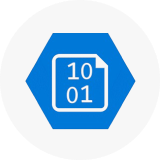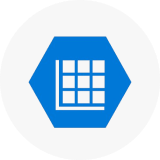Over 70% of enterprise data is stuck in legacy systems - making automation a challenge. DreamFactory and Zapier solve this by connecting outdated databases to modern tools, enabling businesses to unlock their data and automate workflows.
Key Takeaways:
- DreamFactory: Quickly turns legacy databases into secure REST APIs, saving time and costs.
- Zapier: Automates workflows by linking these APIs to over 7,000 cloud apps.
- Benefits:
- Saves $201,783 annually in development costs.
- Reduces security risks by 99%.
- Works with 20+ databases, including SQL Server, Oracle, and MongoDB.
Whether it's employee management, customer data syncing, or automated report generation, these tools streamline operations, improve security, and modernize your infrastructure.
Creating Your First Database API with DreamFactory

DreamFactory's API Creation for Database Access
DreamFactory automates the process of turning legacy databases into secure REST APIs, supporting 18 different SQL and NoSQL systems. Let’s explore how DreamFactory handles database conversion with accuracy and strong security features.
Direct Database-to-API Conversion
DreamFactory simplifies the creation of REST APIs for CRUD operations, stored procedures, and schema management. This eliminates the need for weeks of manual coding while reducing risks like SQL injection vulnerabilities.
The platform supports a wide range of databases, including:
|
Database Category |
Supported Systems |
|---|---|
|
Enterprise SQL |
Oracle, SQL Server, IBM Db2 |
|
Cloud Native |
AWS DynamoDB, Azure DocumentDB, MongoDB |
|
Traditional SQL |
MySQL, PostgreSQL, SQLite |
|
Legacy Systems |
SAP SQL Anywhere, Firebird, IBM Informix |
Each API generated by DreamFactory includes interactive OpenAPI (Swagger) documentation, making it easy to test and implement. This feature has been particularly useful for organizations like NIH, where these APIs streamline analytics on grant applications without requiring expensive system upgrades.
Built-in Security Controls
DreamFactory ensures that enterprise data remains secure with a range of built-in features:
- Role-Based Access Control (RBAC) for detailed permission settings
- API key management to regulate access
- Multiple authentication options, including OAuth and SAML
- Encrypted storage for master credentials
- CORS protection to restrict unauthorized cross-origin requests
These security features have been effectively utilized by organizations like Deloitte, enabling secure real-time access to ERP data for executive dashboards.
"DreamFactory is far easier to use than our previous API management provider, and significantly less expensive."
- Adam Dunn, Sr. Director, Global Identity Development & Engineering, McKesson
Multiple Deployment Methods
DreamFactory also offers flexible deployment options to fit different enterprise needs:
1. Kubernetes Deployment
This option provides scalability and container orchestration, ideal for enterprises managing numerous databases and APIs.
2. Docker Implementation
A great choice for organizations looking for containerized solutions with rapid deployment and consistent environments across development and production.
3. Linux Installation
A traditional deployment method for enterprises with existing Linux setups, offering complete control over the installation process.
These deployment options have been especially beneficial for companies like D.A. Davidson. DreamFactory's REST APIs enable real-time financial data updates for their investor portal while maintaining robust security and scalability.
Building Automated Tasks with Zapier

Connecting Cloud Software
Zapier makes it easy to connect DreamFactory-generated APIs with over 7,000 cloud applications. This integration allows businesses to automate critical processes while maintaining secure access to on-premises data. With these connections in place, advanced workflows can simplify operations and improve efficiency.
Advanced Workflow Creation
Zapier's workflow builder takes automation to the next level by enabling complex, multi-step processes called "Zaps." These workflows use DreamFactory's secure APIs to handle intricate business logic. Features like filters, branching logic, data formatting, scheduled execution, and looping for multi-record processing make it possible to build highly tailored automation sequences.
"Just last month, we had 1,100 help desk requests from our 1,700 employees. Normally, that many requests would overwhelm our team of three, but through our help desk workflows in Zapier, we resolved them easily. Our team of three is able to perform like a team of 10."
– Marcus Saito, Director of IT, Remote.com
Enterprise-Ready Features
Zapier offers tools designed for secure, scalable automation, making it a great fit for enterprise needs:
- Security and Compliance: Includes SOC 2 (Type II) and SOC 3 compliance, adherence to GDPR and CCPA, customizable data retention policies, and robust security frameworks.
- Identity Management: Features SAML 2.0–based Single Sign-On (SSO), role-based access control, and SCIM provisioning for automated user management.
- Monitoring and Control: Provides detailed activity logs, usage analytics, connection monitoring, and performance metrics.
"Without Zapier, we would have needed well over 100 employees today just to do what we're doing. We would have been out of business by now."
– David Laderberg, Vice President at Smart Charge America [4]
Use Cases of DreamFactory and Zapier
Employee Management Systems
Many companies face challenges when trying to connect older HR databases with modern cloud platforms. DreamFactory simplifies this process by creating secure APIs instantly. For example, Pillsbury Law successfully linked their HR systems with SharePoint using this feature. Similarly, TECHeGO used DreamFactory to automate employee onboarding securely. This capability highlights how DreamFactory connects older systems to modern workflows with ease.
Managing customer data also benefits greatly from this secure integration.
Customer Data Management
Keeping customer data consistent across outdated systems and modern CRM platforms is a common hurdle for businesses. DreamFactory helped E.C. Barton & Company connect their legacy ERP system to their e-commerce site without needing custom code. This streamlined data sharing while ensuring strong security measures to protect sensitive information.
Automation tools like these also make reporting tasks much simpler.
Automated Report Generation
TECHeGO uses DreamFactory to handle reporting tasks efficiently, including extracting, transforming, and creating compliance reports. With DreamFactory’s secure API management, businesses can:
- Extract data from older ERP systems
- Convert it into standardized formats
- Generate compliance reports
- Maintain detailed audit trails
These features save time and ensure accuracy in critical reporting processes.
Main Advantages of Combined Tools
Protected Data Access
DreamFactory ensures secure access to enterprise data using Role-Based Access Control (RBAC), API key management, and various authentication methods. It also supports Active Directory integration, allowing businesses to maintain their existing security measures while adding flexibility.
Streamlined Setup Process
In addition to its security features, DreamFactory simplifies the integration process. It can convert database schemas into REST API endpoints in just five minutes, potentially saving businesses around $45,719 per API. The user-friendly platform allows teams to:
- Instantly generate secure APIs for any database table
- Configure authentication methods without needing to write code
- Set up automated workflows using Zapier's interface
Comprehensive Data Integration
DreamFactory also excels in bringing data together across systems. With its Data Mesh feature, users can perform unified queries across multiple data sources, providing a complete view of enterprise information.
The platform supports over 20 database connectors, enabling seamless queries and data mapping:
|
Database Type |
Features |
|---|---|
|
MySQL |
Auto-generated APIs, Schema Mapping |
|
SQL Server |
Built-in Security Controls |
|
Oracle |
Support for Custom Business Logic |
|
PostgreSQL |
Virtual Relationships |
|
MongoDB |
Unified Queries |
Additionally, server-side scripting in Python, PHP, and Node.js makes it easier to create advanced data workflows. These features position DreamFactory as a key tool for connecting legacy data systems with modern automation processes.
Conclusion: Improving Business Operations
Key Takeaways
The integration of DreamFactory and Zapier offers a practical solution for managing enterprise data in an era where 90% of global data was created within just two years.This collaboration addresses the growing demand for efficient data integration with three primary benefits:
- Faster API Development: Traditional API integrations with full security controls can take up to 34 days. DreamFactory automates this process, significantly reducing the time needed to modernize systems.
- Improved Data Access: Connecting legacy systems to modern workflows enables real-time data synchronization, allowing businesses to maximize their existing infrastructure while adding new functionality.
- Strong Security Measures: Advanced protections ensure data remains secure across integrated platforms.
These advantages provide a clear framework for immediate action.
Implementation Plan
To fully realize these benefits, organizations can follow a phased approach:
|
Phase |
Action |
Result |
|---|---|---|
|
Assessment |
Identify key legacy systems |
Develop a prioritized integration plan |
|
Implementation |
Generate APIs for databases |
Secure REST endpoints for access |
|
Automation |
Build workflows in Zapier |
Simplified and efficient processes |
|
Optimization |
Monitor and refine workflows |
Improved operational performance |
Real-world examples highlight the effectiveness of this approach. For instance, the Vermont Agency of Transportation successfully upgraded its 1970s legacy systems by integrating them with modern databases. Similarly, Deloitte provided executives with real-time ERP data through enhanced dashboards.
As organizations face increasing volumes of cloud-based data, leveraging DreamFactory's tools alongside modern architectures ensures they can handle these challenges effectively. This approach not only streamlines operations but also safeguards critical legacy data for the future.
Terence Bennett, CEO of DreamFactory, has a wealth of experience in government IT systems and Google Cloud. His impressive background includes being a former U.S. Navy Intelligence Officer and a former member of Google's Red Team. Prior to becoming CEO, he served as COO at DreamFactory Software.
























 Blog
Blog

